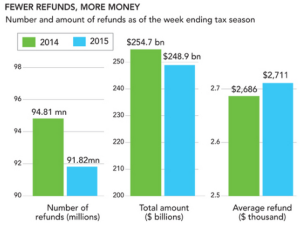Filing A Superseded Tax Return to Claim a Refund
File a superseding tax return to get a refund (05-04-20)
The IRS Taxpayer Advocate has suggested that a taxpayer who previously filed a 2019 return can file a superseded 2019 return on or before July 15, 2020 (October 15, 2020, if an extension was filed), and change the request to apply an overpayment to the 2020 year to request a refund instead.
As the Advocate explains in the April 29, 2020, blog post, taxpayers who have filed 2019 tax returns and have elected to apply the 2019 overpayments against their 2020 tax liabilities have made an irrevocable election, which cannot be changed — that is, unless the taxpayer files a superseded return prior to the original due date of the return. Once the original due date passes — in this case, July 15 (or October 15 if on extension) — the election can’t be revoked.
For business entities, the superseded return may be e-filed by checking the superseding return box on the electronic submission.
For individuals, the process takes longer. Superseding individual returns (Forms 1040) must be filed on paper and mailed to an IRS processing center where they are subject to processing delays and a greater risk of transcription errors. Because the IRS processing centers were closed to protect the health of employees, documents sent to the IRS through the mail were not being opened.
As the processing centers re-open, the IRS anticipates delays in processing the backlog of paper returns and correspondence. Even so, filing a superseding return to request the overpayment be refunded now will generate the refund payment in 2020 rather than 2021.
Providing bank or financial institution account information will further speed up the payment by four to six weeks. Paper returns will be processed in the order received, so file the superseded return as soon as possible.
To see the Advocate’s post, go to:
If you have any questions, please contact us to Schedule your Consultation Today. 949-877-3143 (local) or 800-425-0570 (toll-free)


 Refund Season? As data shows, the 2014 tax year had less refunds but bigger refunds.
Refund Season? As data shows, the 2014 tax year had less refunds but bigger refunds.